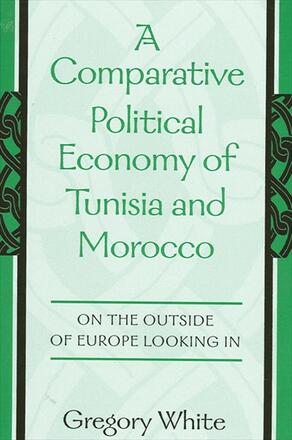
A Comparative Political Economy of Tunisia and Morocco
On the Outside of Europe Looking In
Alternative formats available from:
Examines how rising economic integration with Europe impacts Tunisia and Morocco.
Description
This book examines the profound impact of European integration on two North African countries, Tunisia and Morocco. Confronting the theoretical literatures on the "entanglements" of the domestic and international realms, and the intricate role played by the middle-income state in the international arena, White provides the first detailed comparison of Tunisia and Morocco's post-independence political economies, especially in the context of the "Euro-Mediterranean Partnerships" signed with the European Union in the late 1990s.
North African states must act, on the one hand, as entrepreneurs seeking to encourage trade and attract foreign investment within the domestic economy, in the process of crafting foreign economic policy with the European Union. On the other hand, such states are constrained by domestic pressures such as imperatives to secure job creation and maintain internal security. Countries on the periphery are therefore faced with two distinct questions: first, how does a middle-income state balance its conflicting roles and manage its relations with a regional power; and second, how does the relationship with the outside world affect key domestic actors? Answering these questions is one of the primary challenges facing Tunisia and Morocco in the new decade.
Gregory White is Associate Professor of Government at Smith College.
Reviews
"This is a craftsman-like treatment of an important subject in the fields of political science, political economy, international affairs, and Middle East/North African studies. Clear and direct, it is accessible to lay readers and specialists alike." — John P. Entelis, editor of Islam, Democracy, and the State in North Africa
"The topic is very significant. As developed countries in Europe, North America, and Asia become increasingly integrated, those countries on the periphery will be marginalized or become clients. This book shows how this happens, why this happens, and what the process looks like." — Matthew J. Costello, Saint Xavier University